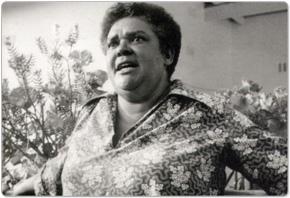|
17 April 2012
The 17th of April marks the death of Bessie Head, one of SA’s finest writers
 |
| Bessie Head |
|
At age 12, the then young Bessie was already one of Africa's most respected writers and she went on to earn an exceptional reputation as a journalist for Drum magazine as well as teaching at various schools.
Whilst employed as the only female writer by the Golden City Post newspaper in Cape Town, she met politically active individuals. Because of her troubled background, she could associate with such individuals and the many marginalised South Africans during those apartheid years. When she joined Drum magazine, she met the likes of Robert Sobukwe, then leader of the Pan Africanist Congress, just before the Sharpeville Massacre. She was accused of being a PAC operative and subsequently arrested and tortured.
Most of Bessie's recognised works are set in Serowe, Botswana, where she was exiled. Some of her notable novels include When Rain Clouds Gather, Maru and A Question of Power. She also produced exceptional short stories and it was reported that she wrote many poems, however, the only one published was Things I Don't Like. Her troubled childhood and struggle for identity was demonstrated in most of her work.
Background
Bessie was born in Pietermaritzburg to a wealthy white woman and a black servant. Since interracial relationships were illegal in South Africa at the time, her mother was declared insane and schizophrenic and was subsequently institutionalised in a mental health facility to "cover up the embarrassment".
She was then removed from her mother and initially placed with a white adoptive family. However, her racial identity later became blurred. She was then removed again and placed with a coloured family. At age 12, she was removed from the coloured family by welfare authorities and placed at St. Monica's Diocesan School for Coloured Girls in Durban.
Prior to this, Bessie had never been told the full story regarding her biological parents until the school's warden applied for a government grant which forced Bessie to appear at Durban Magistrate's Court in order for the grant to be approved.
Bessie heard for the first time, at age 14, the full details of her background - that her mother was an "insane" white woman and her father, a "native black man" who worked in the neighbourhood. This devastated Bessie so much that she later commented: "I have always just been myself with no frame of reference to anything beyond myself...I just don't fit in or belong anywhere and I tend to pride myself on not fitting in or belonging."
In 1961 she married her husband Harold Head and they had their only child, Howard, in 1962. She later divorced him citing adultery and "womanising" as reasons. Both Bessie and Harold wrote for the New African newspaper where Bessie continued to develop a keen political consciousness.
After the divorce, she decided to take up a teaching post in Serowe, Botswana, and that's where she remained until her death in 1986 from liver disease.
In 2007 the Bessie Head Heritage Trust was established, along with the Bessie Head Literature Awards. In July 2007 the library in Pietermaritzburg was renamed the Bessie Head library in her honour.
In 2003 she was awarded the South African 'Order of Ikhamanga' in gold for her exceptional contribution to literature and the struggle for social change, freedom and peace.
Bessie is one of the icons honoured in the Sunday Times Heritage Project.
Visit her memorial page on the Sunday Times Heritage Project website.
View the The Sunday Times Heritage Project Collection (AL3282).
|







